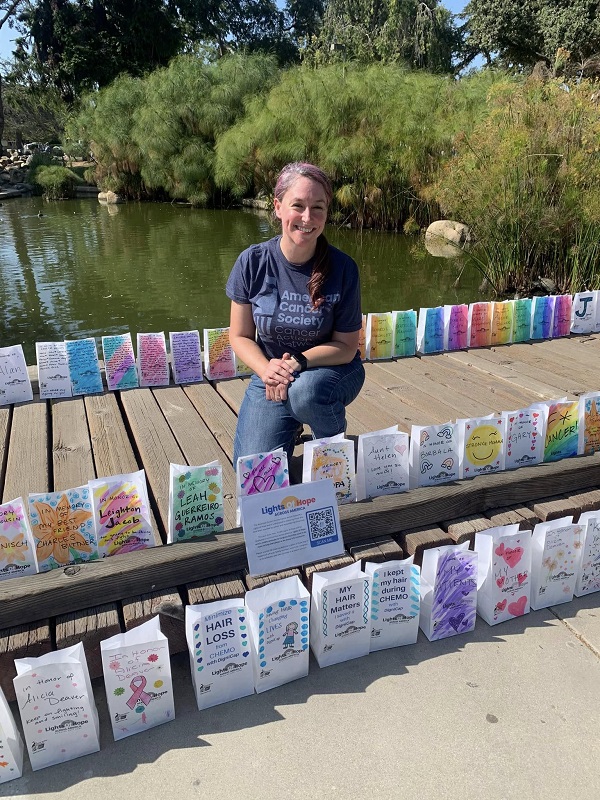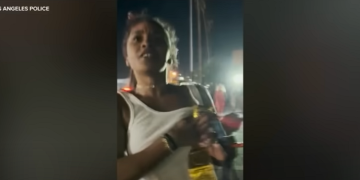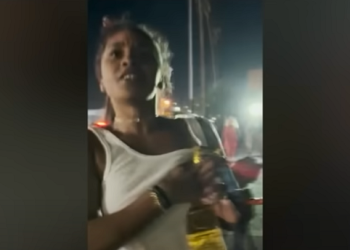
With the release of the master land-use plan for the West Los Angeles Veteran Affairs campus, neighboring groups are vying for a spot on the Westside’s largest undeveloped property.
For one local nonprofit leader, a spot in the West L.A. VA is the only reason for existence.
Since Curtis Mack came out of retirement to become the executive director and sole employee of the Veteran Park Conservancy (VPC) in May, he’s been talking to members of legislature, the county Board of Supervisors, congressional delegation, community stakeholders, VA Secretary Robert McDonald, veterans, and media to say one thing: “It’s time to say ‘let’s get it straight as to who we are and what we are and why we are,’” he said in his anything-but-posh Brentwood office in September.
Mack has been knocking on doors and building bridges in an attempt to rebuild and reroute the VPC.
“It’s been a matter of meeting people, establishing lines of communication with people that agree with us. Some may have other thoughts about what needs to be done,” he said.
“We don’t want a public park, which has been one of the criticisms. We want to honor veterans past, present, and future.”
Mack and the VPC are up against years of media scrutiny, veteran criticism, and legal battles that have left the nonprofit’s name tarnished.
Mack is here to fix all that.
In 1986 a group of Brentwood residents rallied together to challenge the VA’s attempt to sell 109 acres of federal property. This gave way to the Cranston Act and was the precursor to the VPC. Later, the privately funded VPC would spend more than $10 million on enhancing the land – they built 1.5 miles of fencing and planted hundreds of trees around the National Cemetery, restored the Spanish-American War Memorial, and overhauled the 1947 Women Veteran Rose Garden, among others.
“It was always to raise money to enhance, to build, and then give to the VA as a gift,” Mack said. “We didn’t use it for anything of our own and we gave them those things to the VA.”
As a result of this public-private partnership and a 30-year enhanced sharing agreement with the VA, the VPC developed a vision for developing spaces, amenities, and facilities that would address veterans’ physical, spiritual, and mental healing.

The last project of theirs was the Hollywood Healing Canteen Center, or the amphitheater, a 1,100 square-foot stage, “where the VA wanted to do things like reading poetry, lectures, advancing additional areas for Tai Chi or clay pottery or whatever, things that would lend themselves to the holistic approach to healing as opposed to the hard medicine,” Mack said.
The amphitheater remains 80 percent complete, surrounded in chain link fence and tennis drapery owing to a federal judge who halted the construction on the contested 16 acres of the campus in January.
All of this was a result of a 2011 American Civil Liberties Union lawsuit filed on behalf of veterans and veteran advocates bringing forth the alleged illegitimacy of certain land leases. As part of the settlement, the lawsuit will be dismissed.
Such non-veteran-related leases began to occupy the land as early as 1981 (UCLA baseball field) before the VPC made an arrangement with the Department of Veteran Affairs to start construction of a rent-free public park.
As a result, U.S. District Judge James Otero ruled two years later that the VA had violated federal law by “abusing its discretion” and leasing land for purposes unrelated to veteran healthcare.
The government also pledged to develop an “exit strategy” for tenants that are leasing facilities for uses not directly related to veterans’ care. Among those are UCLA’s baseball stadium, the private Brentwood School’s athletic complex, a hotel laundry and storage for an entertainment studio’s sets.
“We got thrown in with everyone else even though we were a different animal because we weren’t using it for any purposes of our own, it was for vets; but because it was the name, we got thrown in there with everybody else,” Mack explained.
In the midst of the 45-day comment period for the master plan, Mack said the VPC has been involved in the planning process. They now have an idea of the zones of the land use and the developing. But Vince Kane, special assistant to the U.S. Secretary of Veterans Affairs, has said the issue of commercial and other non-veteran related tenants would be addressed in the final plan due out in January.
The master plan lists the VPC’s land-use agreement – among the 20 others – as expired but currently in discussions.
Mack said the VPC is waiting for anything that gives them the go-ahead to start raising money, develop the plans, and complete the project.
And they’re keeping a close eye on Senator Dianne Feinstein (D-CA) and Congressman Ted Lieu’s (D-Los Angeles) “Los Angeles Homeless Veterans Leasing Act of 2015.” If enacted, it will enable VA to enter into certain veteran-focused lease agreements with housing providers, local governments, community partners, and non-profits, to provide additional housing and services, particularly for severely disabled, aging, female veterans, and homeless veterans.
“We’re talking millions of dollars there that needs to be raised and put the plans forward,” Mack said. “Those are projects for several years. At the same time we want to rebuild the relationship with the VA to see what other types of things we can do that would assist. The VA is a mechanism for us.”
In other words, he said, the VPC isn’t there to do the VA’s job – they want to work through the VA to enhance and develop projects for veterans.
A former U.S. Air Force Colonel with almost 31 years in active and reserve military duty, Mack was the president of the Los Angeles World Affairs Council and was the founder and president of the Los Angeles Global Forum. Earlier in his career he worked with the VA as assistant to the Director of the Los Angeles Regional Office and also as the Assistant Veterans Services Officer. There he was responsible for all public contact with veterans concerning non-medical benefits.
It’s with this familiarity of the culture within the VA and such martial tenacity that Mack prepares to rebuild a 30-year-old organization.
“I don’t mind pounding ground a little bit, being nosey and meeting people,” he said.





















